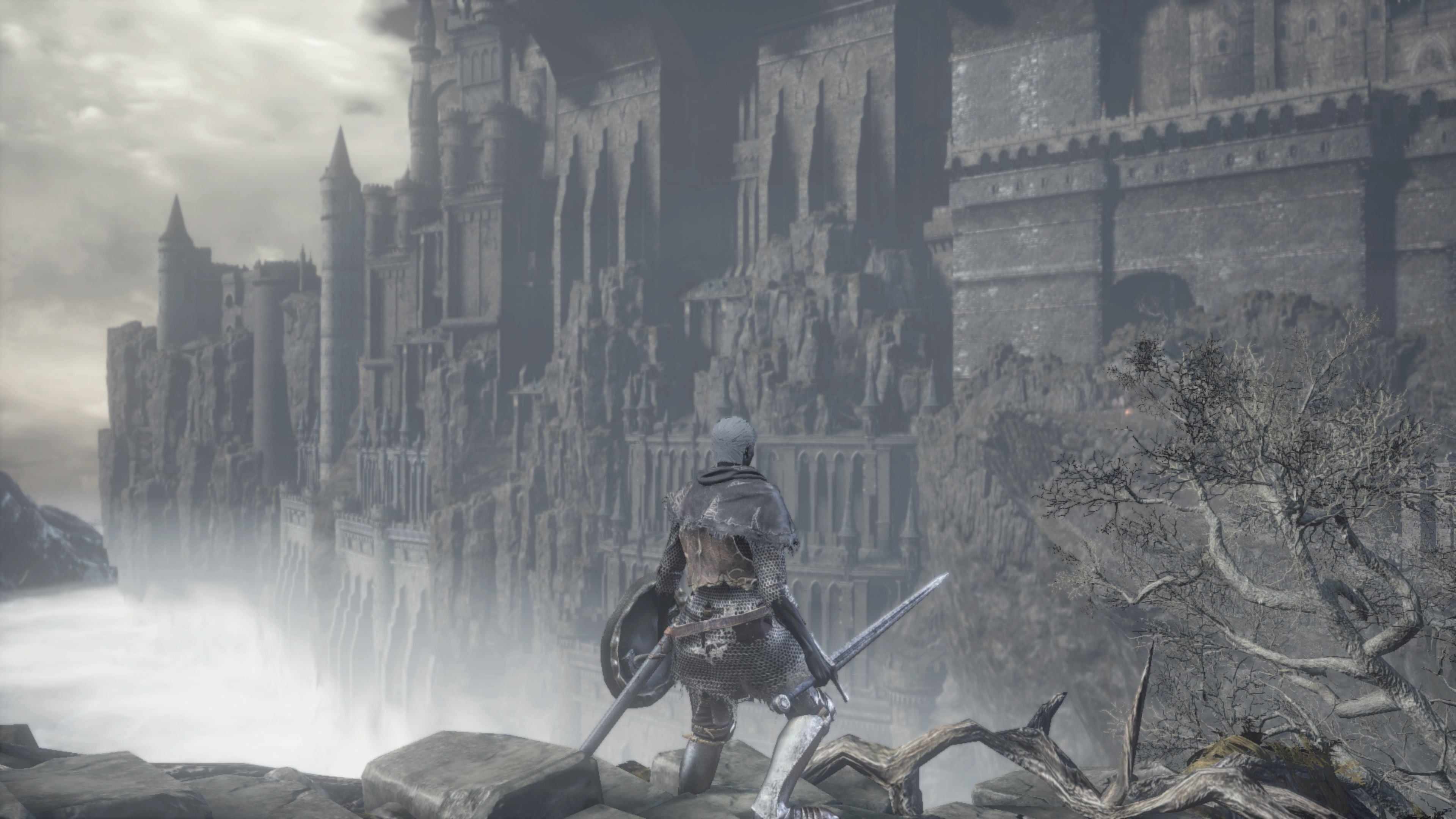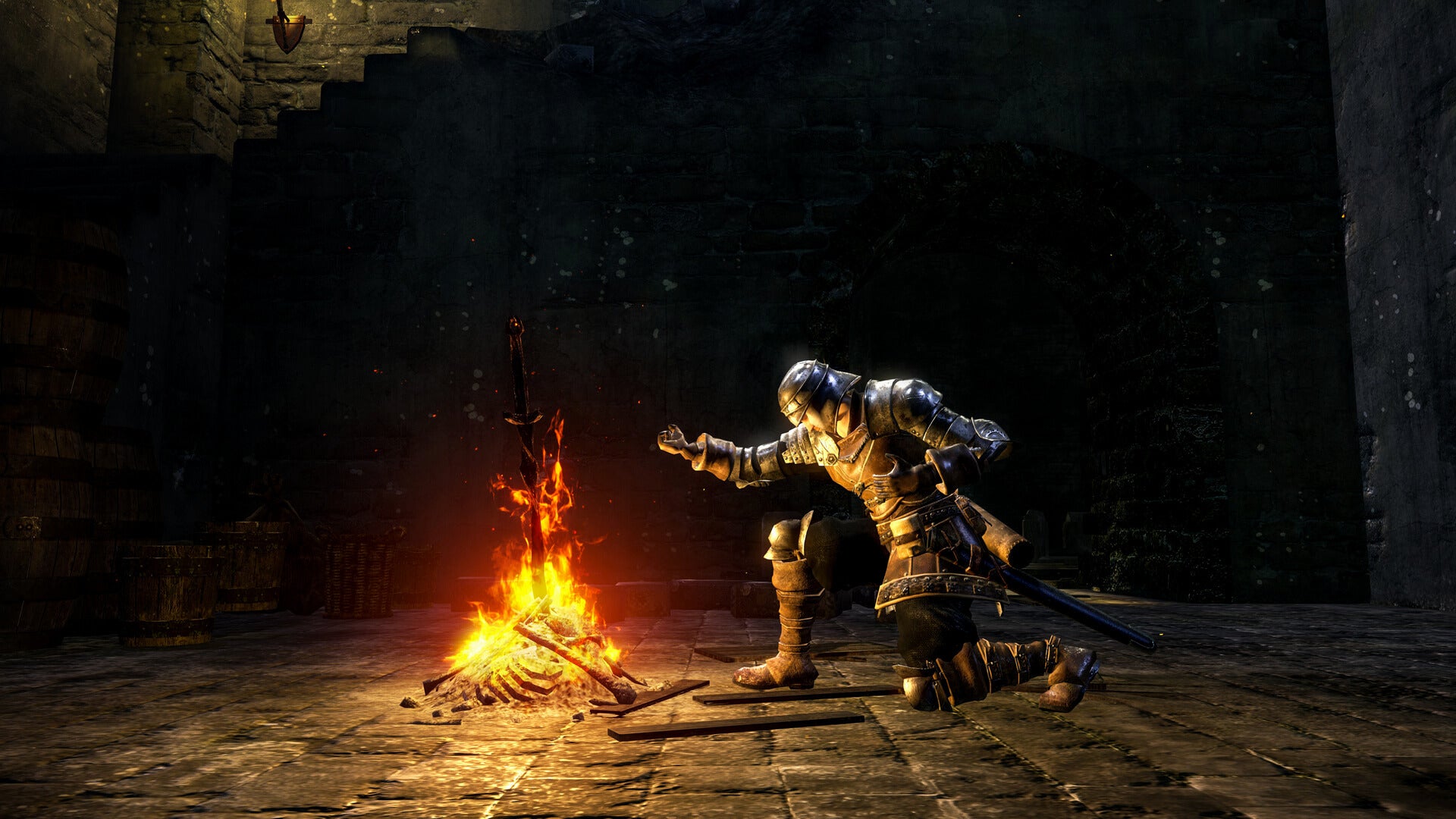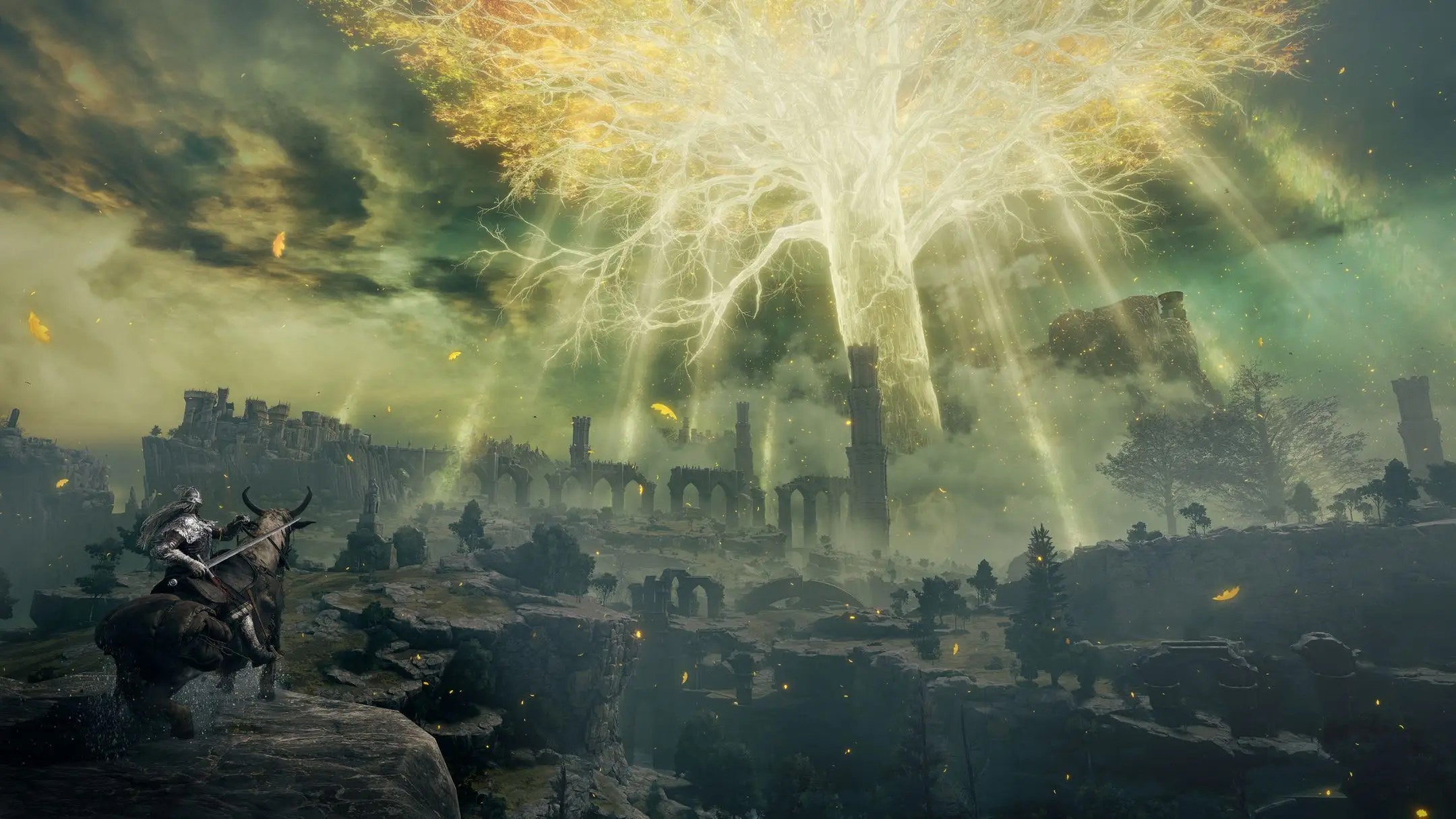If you’re unfamiliar with FromSoftware’s oeuvre, Dark Souls is a series of third-person adventure games famed for their punishing difficulty and obtuse narratives. I don’t know what it is about the series that makes my visual issues worse than other games. Perhaps it’s that everything’s an unsettling shade of grey or maybe I can no longer parse motion in artificial three-dimensional spaces. But when a Dark Souls enemy swings, I’m not seeing it clearly 80% of the time. Why do I love inaccessible games? I don’t like to repeat myself, nor do I enjoy beating my head against an obstacle for too long. Yet, both are core to the Dark Souls experience. It’s not as if there are accessibility options that make the games more user-friendly and most mods are designed to make the games more inaccessible. There’s just something about the dopamine Dark Souls provides that’s different from other games. With each tiny increment of progress, when my life is otherwise stagnant, I feel real momentum. This isn’t unusual. A survey by Chinese telecom company OPPO found that 10% of subjects suggested gaming success can be better than a pay rise. With more than 50% of the UK population regularly playing games, interactive media has become a vital part of our lives - and so too the progression therein. Which doesn’t explain why I’ve avoided 2022 releases to keep my schedule clear for Elden Ring, or why I’ve completed Dark Souls II upwards of twenty times. It makes me uncomfortable to consider it, but I’m not sure I’d connect with the series in the same way were I not disabled. In a world in which I can’t overcome my disability, overcoming something made more difficult by that disability takes on a greater meaning. The gaming industry is at a critical juncture in the context of accessibility. On one hand, studios are – slowly – embracing improved accessibility. On the other, the player base is aggressively resistant to change. Especially if it invokes what they perceive to be an easier experience.For every game like Horizon Forbidden West, which offers extensive accessibility options, there is an E3 2020 – when Take-2 Interactive delivered a presentation on accessibility, it was widely denounced as an attempt to politicise gaming. The Dark Souls community is infamous for its resistance to accessibility. Convinced that Dark Souls is uniquely difficult, the community maintains it must be played as intended. If we want a more accessible experience, we should play something else. Ironically, accessibility advocates aren’t interested in diluting developer intent. As the APX framework – a tool for driving accessibility considerations – points out, “We are not saying you should limit or water down the experience your game offers… What APX offers is a way to think about whether you could provide that experience to players with different types of disabilities.” Nor is the relationship between difficulty and accessibility as simple as many able-bodied players make out. An “easy mode” in Dark Souls doesn’t mean I’d be able to see it. As Dr Rory Summerly, of Falmouth University’s Games Academy, put to me, “Photorealism needs to be balanced out by the visual design” where it can reflect “real life spaces such as train stations [which] clearly signpost and organise the information in those environments to be readable to someone quickly.” In reality, a lack of accessibility – visibility, in particular – represents flawed game design. A fact readily admitted when Call of Duty: Black Ops Cold War released with major visibility issues that affected able-bodied players. But to question Dark Souls is sacrilege. In the UK, around 21% of the population live with some form of disability. In 2020, thanks to poor management of the pandemic, 60% of Covid-19 deaths in the UK were among the disabled, on top of tens of thousands dying within the punishing welfare system. 1 in 10 suicides in England is linked to chronic illness. Understand that when I talk about accessibility, it’s not just about playing a game. So, when I read able-bodied players complaining about accessibility as politicisation, it provokes a visceral reaction in me. When journalists maintain assumptions that accessibility options are difficult and expensive to implement, the exasperation isn’t just for show. The conversation around accessibility is constantly hijacked by able-bodied players and their misconceptions. I asked Dr Summerly about the cost of accessibility and he told me accessibility options are “generally very cheap to implement particularly if they are designed from early on in development.” Moreover, “accessibility considerations designed for disabled users actually benefit everyone.” Something able-bodied players rarely consider. Few of us will go through life without experiencing disability. A broken hand will heal, but in the interim a player will appreciate anything that allows them to play without it. If you have construction work nearby, you’ll be grateful for subtitles and on-screen prompts. When King Of Fighters allows players to darken the background to better define fighters, everyone can benefit – but some of us cannot see otherwise. When Spider-man lets us swap button taps for holds, it’s easier for everybody – but some of us are physically incapable of making the default inputs. When Dark Souls asks us to track multiple movements in seconds and offers no aids to do so, it excludes wide swathes of the gaming community – not just disabled players. Accessibility isn’t solely for the permanently disabled, it’s for everyone. Not every game can look like Mirror’s Edge but that doesn’t mean games should sacrifice things like visibility for graphical fidelity. EA filed a patent as far back as 2016 for a system that improves “visibility of similar luminosities in a digital media”, and in 2021 offered free use of their patents for accessibility features. Studios like Naughty Dog and Guerilla Games continue to prove the tools to improve accessibility out there. Many developers – and Japanese studios are especially guilty of this – just don’t want to implement them. I know there will come a day when I won’t be able to play FromSoftware games. Perhaps it will end with Elden Ring. Based on the framework of Dark Souls III, it promises to be another squintfest. Dr Summerly is more hopeful, however. “As long as good visual design and clever use of customisable user interfaces prevail as tools available to game developers,” he said. “I don’t see why [visibility] should continue to be a problem for players in the future.” I hope he’s right. I love Dark Souls. I can’t see it, but I don’t want to lose it.


